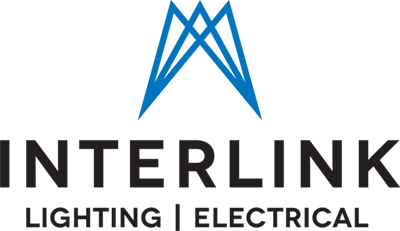Maintaining the safety of electrical installations and circuits of a commercial building such as a shop, office, or warehouse is crucial. To ensure the well-being of occupants and prevent potential hazards such as electric shocks or fires, it is recommended that an electrical installation condition report (referred to as EICR or fixed wire testing) be conducted.
For more guidance into commercial electrical testing, including the necessity of an EICR for commercial premises, we have created a handy guide to provide you with the relevant information…
Are commercial landlords required to provide electrical certificates?
While residential landlords must conduct EICR inspections, commercial landlords are not legally obligated to do so.
However, having an electrical certificate can demonstrate that the building’s electrical system is secure and meets regulations, such as The Health and Safety at Work Act.
How frequently should electrical testing be conducted on commercial premises?
The frequency of electrical testing, known as an EICR (Electrical Installation Condition Report), varies depending on the type of commercial premises.
Electrical testing is recommended every five years for most commercial buildings, such as shops and offices. However, factories and other types of buildings may require more frequent testing.
It’s important to note that the recommended testing frequency may differ based on the specific conditions of the electrical installation. If the installation is quite old, for instance, the engineer may suggest conducting tests more frequently to ensure safety.
Why is conducting an Electrical Installation Condition Report (EICR) important for commercial buildings?
Commercial buildings, particularly factories or manufacturing environments, are at higher risk of fire due to several factors:
- Dust accumulation: Factories can accumulate dust, which can enter vents and sockets and cause electrical equipment and installations to overheat.
- Use of flammable substances: Flammable gases and chemicals are often used in the manufacturing process, increasing the potential for fire incidents.
- Presence of flammable materials: The presence of flammable materials such as paper, wood, and other combustible products further elevates the fire risk.
- Increased wear and tear: Electrical equipment and installations in commercial settings are subject to more wear and tear due to prolonged usage.
As the owner of a commercial building, you have a legal obligation to ensure its safety in accordance with regulations like The Health and Safety at Work Act 1974 and The Electricity at Work Regulations 1989.
Failing to prioritise safety can have severe consequences. If someone gets injured, you may be held responsible for the damages. Additionally, your insurance company might refuse to provide coverage for fire-related incidents if you cannot demonstrate that you have taken necessary safety measures.
Conducting an EICR is the most effective way to safeguard your commercial building from fire risks and ensure compliance with regulations and standards.
What aspects are examined during commercial electrical testing?
During commercial electrical testing or EICR, a trained electrical engineer will assess the building’s electrical installation(s).
The electrical installation includes:
- Consumer unit: This is commonly known as the fuse box or distribution board.
- Cabling: The wiring system responsible for transmitting electrical power throughout the building.
- Accessories: This refers to sockets, light fittings, switches, and other electrical components used in the building.
Commercial electrical testing helps identify any faulty components or issues within the electrical installation. By addressing these problems promptly, you can prevent them from escalating into major concerns.
How much does it cost to get a commercial EICR?
The cost of a commercial EICR (Electrical Installation Condition Report) depends on a few things:
- Building size and number of rooms: The larger the building and the more rooms it has, the higher the cost may be.
- Number of circuits: If your building has a lot of electrical circuits, it can affect the cost.
- Accessibility of circuits: If your electrical circuits are easy to access, it may reduce the cost. However, if they are difficult to reach, it may increase the cost.
- Complexity of the electrical circuit board: If your circuit board is large or has intricate wiring, it may contribute to a higher cost.
Additionally, if you want to include thermal imaging in the inspection, there may be an extra charge for that service.
Who can complete commercial electrical tests?
Testing the electrical systems in commercial and industrial settings is a crucial aspect of ensuring safety. Therefore, it is essential to entrust this task to a trained individual who possesses the necessary expertise.
To ensure comprehensive testing that adheres to current safety regulations, it is important to select a reliable and registered commercial electrician who has the relevant experience and is specifically trained to carry out inspections.
A qualified and certified electrical contractor will:
- Possess the required training, expertise and extensive field experience, including working with electrical systems in commercial buildings such as offices, restaurants, shopping centres, warehouses and retail stores.
- Provide peace of mind by prioritising safety throughout the entire process.
- Effectively troubleshoot issues promptly due to their deep understanding of the systems, resulting in time and cost savings.
- Offer fully insured work, ensuring that any damages or accidents that may occur during the testing process are covered.
- Issue commercial electrical certificates that are relied upon by business owners, landlords and building control authorities to assess the electrical safety of a property.
Use Interlink Lighting’s EICR testing service
At Interlink, we have over 25 years of experience recommending and providing EICR tests and EICR certificates. We offer EICR testing services for your property, enabling us to identify and rectify any electrical system faults to ensure the safety of your building. Additionally, we provide an EICR certificate as proof that your property has undergone lawful safety assessments for the well-being of your staff.
If you’d like to find out more about Interlink’s services, get in touch with us today!


